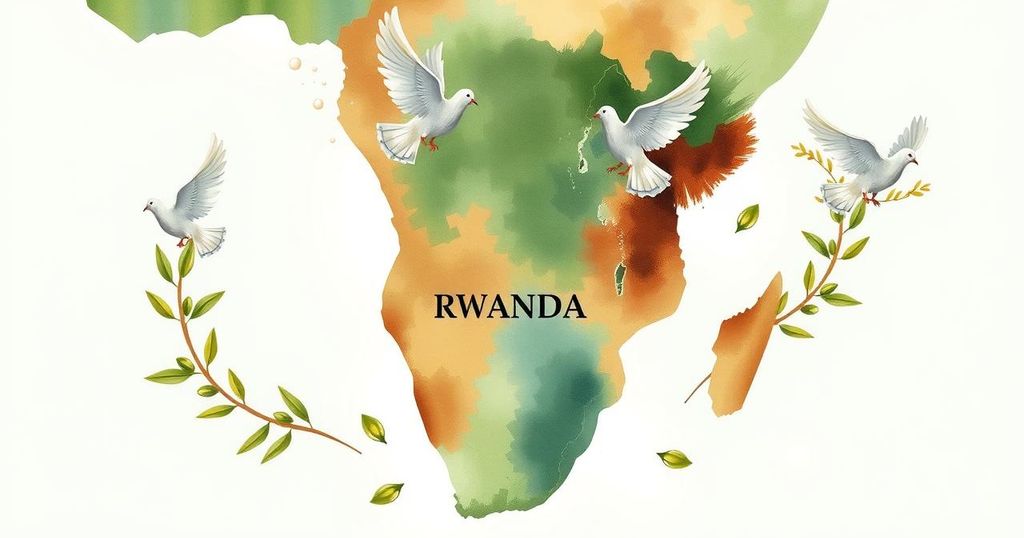Trump Announces Peace Treaty Between Congo and Rwanda, Says Great Day for Africa

President Trump announces a peace treaty between Congo and Rwanda, aiming to end decades of conflict. He acknowledges potential lack of recognition from the Nobel Peace Prize committee for his efforts in various global conflicts. Tensions with Iran continue to rise, with Trump indicating a decision on military action will come soon. The impacts of these geopolitical shifts on global trade and the economy could be significant.
U.S. President Donald Trump announced on Saturday that he has successfully brokered a peace treaty between the Democratic Republic of Congo and Rwanda, which has been plagued by violence and conflict for decades. Speaking on his media platform, Truth Social, Trump expressed his happiness about his role in facilitating this significant agreement, which he stated would put an end to the prolonged hostilities characterized by violent bloodshed.
In his post, Trump mentioned that both countries’ representatives would arrive in Washington on Monday to sign the treaty, celebrating it as “a Great Day for Africa and, quite frankly, a Great Day for the World!” It seems his global peace initiatives are a priority, though he did not shy away from mentioning the lack of recognition he believes he deserves from the Nobel Peace Prize committee.
“The committee won’t award me for this treaty or for resolving tensions between countries like India and Pakistan,” he asserted. He continued, “No matter the outcomes of my efforts in regions like the Middle East or with the Ukraine/Russia situation, what matters to me is public support.” This claim from Trump hints at his desire to have his global efforts recognized, regardless of traditional accolades.
Meanwhile, Trump also appears to be considering his next steps regarding potential action against Iran, as several developments on that front stirred speculation. White House Press Secretary Karoline Leavitt stated that the President is expected to announce his position within the next two weeks. The situation with Iran remains complex, with ongoing negotiations that are said to have a substantial chance of occurring in the near future.
Leavitt told reporters, “The communications between the U.S. and Iran are ongoing, whether direct or through intermediaries.” However, no specifics were provided. Trump himself, when questioned about a potential strike on Iran, remained noncommittal. “Nobody knows what I’m going to do,” he said, emphasizing both the unpredictability of his decisions and Iran’s existing troubles.
He has made it clear that any agreement must ensure Iran does not develop nuclear weapons, stating, “Iran must give up its entire nuclear program.” Recently, tensions flared further following an Israeli attack on Iran, which resulted in Iranian retaliation, leading to a series of military exchanges between the two nations.
As conflict persists, analysts suggest that Iran’s ability to rely on allies like Hezbollah has diminished significantly. The shifting landscape could also affect American consumers directly through economic repercussions, as Iran has threatened to attack commercial vessels in critical shipping lanes, thus potentially raising oil prices globally. The high stakes around these ongoing conflicts suggest a tangled web of interests for the U.S. as it navigates this intricate scenario.
In summary, President Trump has taken credit for a peace treaty between Congo and Rwanda, which he claims will mark a new chapter for peace in Africa. However, alongside this diplomatic feat, tensions with Iran are escalating, as Trump contemplates direct action. His vocal frustration over not receiving a Nobel Peace Prize underscores his belief that public awareness of his international efforts is of utmost importance, despite the lack of formal recognition. As conflicts continue, the impacts on global trade and regional stability remain to be seen.
Original Source: www.tribuneindia.com






